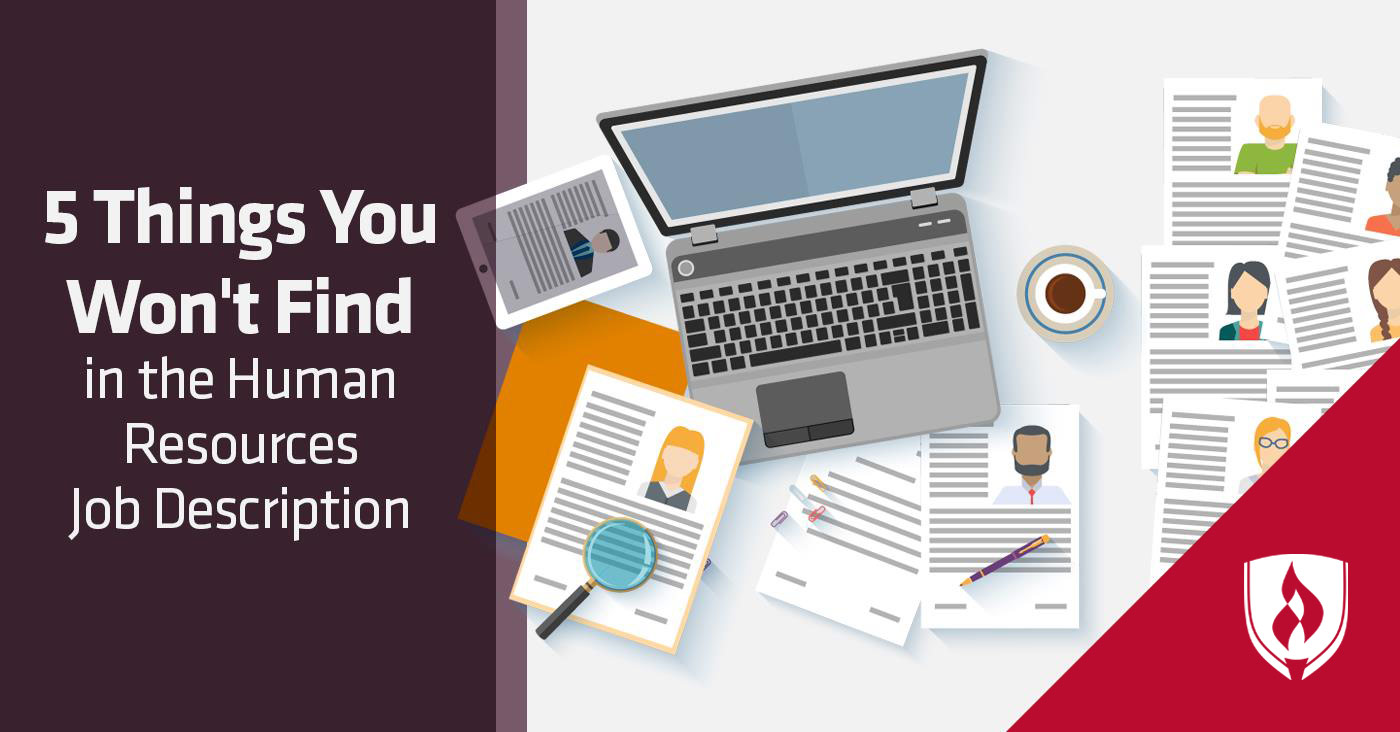
You’ve always been a good listener, and your friends and family swear by your wonderful communication skills. You have a knack for people, and not only that, but you’re pretty organized too.
A career in human resources (HR) seems like a position that’s been built for you, but you’re not sure of the actual ins and outs of the job. The human resources job description only reveals so much about the day-to-day duties.
So how can you discover what an HR position is really like so you don’t get roped into something unexpected? Look no further than this article.
We gathered firsthand accounts from a number of HR professionals and compiled a list of some helpful insights about working in the field. If you want to know about the skills you’ll need to succeed or what the work environment is really like, then keep reading. Or read more about employee tenure trends.
5 expert insights about the human resources job description
1. Working with people isn’t always easy
Having great people skills isn’t necessarily synonymous with pleasing them. When you work in a human resources department, you have to keep in mind that while you’re advocating for the employees of the company, you also have to keep the organization’s best interest in mind as well.
“There might be tears and a host of reasons why [someone] shouldn’t really be in this or that position,” says Karla Jobling, COO and Founder of BeecherMadden. “Being able to empathize but sticking to the process or outcome that the company needs can be really hard.”
The juggling act of keeping people happy and protecting the business can be challenging. But if you enter your HR position with this knowledge ahead of time, it could make all the difference. Keep in mind that your empathy is still a valuable asset. Hiring and firing employees can be taxing, but it’s essential to the success of a business. You just have to stay the course and remember what you’re there to accomplish.
“You might need to keep the tissues handy as people get emotional when they bring their hurt feelings and personal problems to you,” explains Katy Caselli, an industrial and organizational psychologist and author of Building Giants. “But remember this, you are there to save the company money, protect it from liability and put a people-friendly face on top of that.”
2. You’ll do a lot of administrative work at first
No matter the work environment you’re hired into, you’ll most likely be assisting with a variety of administrative work to help keep the organization running smoothly. This is where you get to flex your jack-of-all-trades muscles and show the company just how organized you really are.
“You'll likely do a lot of filing, writing template letters, uploading employee information into HRIS systems, talking to staff about benefit coverage, helping to troubleshoot pay or other issues and so on,” says Jana Tulloch, a human resources professional at Develop Intelligence.
While the administrative duties of HR employees are vast, it’s clear that you won’t have to complete these same tasks for the entirety of your career. As you gain more experience, you’ll have the opportunity to focus on other areas within the field.
“You may wish to specialize in a particular area of human resources,” Tulloch says. Some common areas include: Employee/labor relations, compensation and benefits, training and development, staffing/hiring and analytics. “This is when you'll take on more responsibility and more autonomy in the decision-making process,” she adds.
3. Hiring and recruiting involves a certain finesse
There’s no way around it—hiring the right employees is a very specific skill. As an HR professional, you may be conducting interviews one-on-one with potential candidates or you might be a part of a hiring committee.
“Knowing how to conduct an interview is even more difficult than being interviewed,” says Lauren McAdams, Career Advisor and Hiring Manager at ResumeCompanion. “You need to learn to read between the lines, to understand the difference between a nervous mistake and a lack of confidence and what specific features in an interview will translate into appropriate attributes on the job.”
Part of the human resources job description if to act as the gatekeeper for your company. So understanding what the red flags are and whom you should and shouldn’t hire is certainly something you’ll do well to master.
4. You’ll have to understand and communicate the big picture
Oftentimes, HR professionals will be the ones training in new employees. Most companies have a very specific process to onboard new hires, so understanding the mission and vision of the organization, as well as how all the different roles work into the greater whole, is necessary.
“You'll need to have a firm understanding of just about every role and every department in a company and be able to articulate how that particular position functions and how it contributes to the big picture,” McAdams says.
While you probably won’t be conducting every part of the training, you’ll be introducing new hires to the essentials and the basics—like getting them a name badge, explaining benefits, vacation and sick leave. You’ll likely also assist them in getting familiar with the layout of the building and their office.
5. It’s important to be approachable, yet discreet
HR professionals walk the tricky tightrope of leveraging payroll and benefits, while at the same time, remaining prudent about what information they take in and share.
“Confidentiality in HR is obviously important. But it is also important to build relationships with the rest of the business, and keep your finger on the pulse,” Jobling says. “Colleagues in other departments need to trust you enough to pass on what is happening, what morale is like and what the real feedback is on new policies. But to get that information without giving anything away is a challenge.”
It’s not always an easy balance, but there’s a certain satisfaction that comes with being able to sway the direction of employee benefits and reward those who really need it.
“In HR you will be responsible for discussing pay and perks with employees and management alike,” McAdams explains. “Because of this, your negotiating skills need to be on point. This is also highly confidential information, so discretion is critical, as well as good judgment of employee performance.”
It’s time to take the next step
Now you have a better understanding of the human resources job description. However, many factors depend on your specific company and position. The roles and responsibilities you have in your first job will likely change as you gain more experience and move up the ladder.
To learn more about the advancement opportunities in the field, check out our articles , Human Resources Job Titles for Every Stage of Your Career and How to Become a Human Resources Manager.
RELATED ARTICLES:




